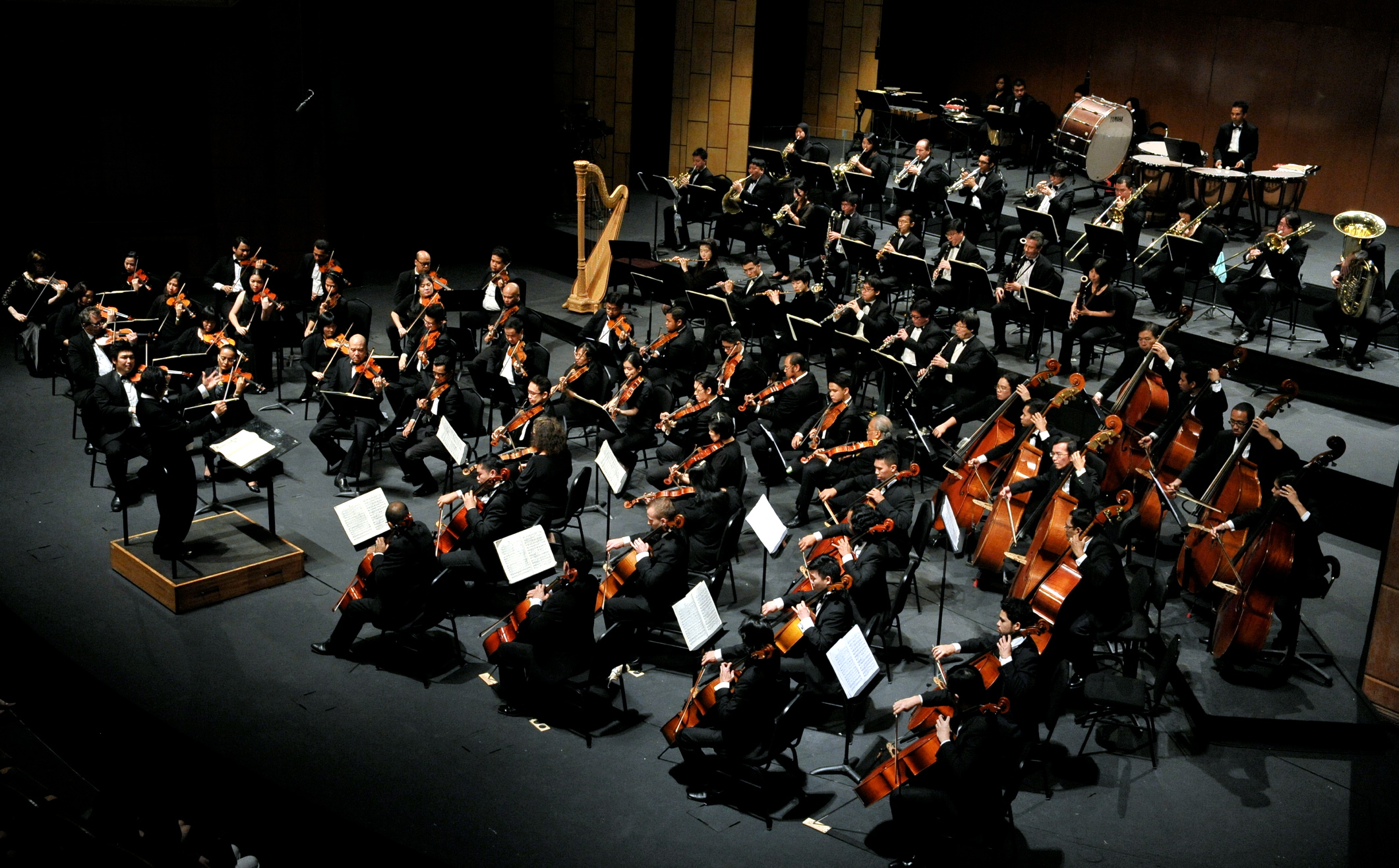ID :
279629
Tue, 04/02/2013 - 09:52
Auther :
Shortlink :
https://oananews.org//node/279629
The shortlink copeid
Classical Music A Fine Start In Learning Music

By Kharizal Mat Khalid
KUALA LUMPUR, April 2 (Bernama) -- The song 'Anakku Sazali' composed by the late singer, P. Ramlee (also a legendary figure in the entertainment industry in Malaysia) for the movie with the same title not only depicts the love of a father for his son but also his genuine passion for music.
In 'Anakku Sazali', another of Ramlee's unforgettable movie, he not only takes the dual role as the father Hassan, and the spoilt son Sazali, but also dwells deep into music. So much so he practices music late into the night and there is nothing to deter him.
The determination and single-mindedness portrayed by Ramlee's character in the movie and in real life is what the present generation needs in mastering music.
If only P.Ramlee is still around, he will have helped to bring about changes in the performing arts education including music at the primary and secondary levels or even at higher learning institutions.
CLASSICAL MUSIC
Istana Budaya's (IB, a Malaysia's main venue for all types of theatre) Music Director Mustafa Fuzer Nawi said music lessons, whether in schools or at higher learning institutions, could be strengthened by learning classical music that provides solid foundation for learning all other music genres.
There should also be wider exposure to classical music so that more students and music lovers will be able to grasp the basics of the art form.
"Music lovers should be able to understand why sometimes a song is hard to understand. If it is the usual music piece, it will contain a melody and rhythm but in a classical piece, there is also such a thing as anti-melody, counter melody and other layers," he told Bernama in a recent interview.
Mustafa Fuzer said based on his experience as a part time teacher whether in schools or at higher learning institutions, he found the younger generation weak
in reading musical notes unlike in advanced countries.
"For example, in the advanced countries, they stress on discipline and special classes for music lessons thereby producing attractive music programmes that could be taken up."
MUSIC EDUCATION IN THE WEST
Mustafa Fuzer said the younger generation should turn to Western nations like Germany, Russia, France, Italy and Britain as these countries had produced
exemplary musicians who have greatly inspired the world with some of the greatest works in classical music.
"Sergei Rachmaninoff for example was a well known Russian pianist and symphony composer, and the younger generation should study on how he made his
compositions and musical arrangements," he said.
He was also quick to point out that it was not about glorifying the West but bringing out the examples of achievements in the arena of classical music from these countries.
Clearly, right from primary school to secondary school and the higher education institutions, there is classical music education in these places and at the district levels they have their own orchestra.
"Imagine having a symphony orchestra for those below 21-years of age, under 18, under 15 and one under 12 to 10-years of age, and that is only at the amateur level. At the professional level, they have an orchestra to represent a large town.
NATIONAL SYMPHONY ORCHESTRA
Explaining the intricacies within the composition of sentimental classical pieces, he said a song would have its 'characters', complete with an 'actor' and 'actress' within the story being told in the music arrangement.
"As for the National Symphony Orchestra (OSK) (above) at Istana Budaya, the younger generation always given the opportunity, most of the musicians for the television programmes are graduates from the Universiti Institute Technology Mara (UiTM) and the National Academy of Arts and Culture (Aswara)."
Mustafa Fuzer also expressed hope that various parties would make classical music a culture so that the art form would grow in strength from year to year.
"Do we hear this music in television? Is music considered an academic part? What we hear most is the pop songs. Should someone ask what is Capriccio, not all will know."
ASWARA PLANS FOR AN ORCHESTRA
Meanwhile, the National Academy of Arts and Culture (Aswara) gives strong attention to the study of the classical music forms to ensure that students from its music faculty get to master the subject.
The Dean of its Music Faculty Ayob Ibrahim said Aswara gave importance to its teaching of the classical, traditional as well as modern art forms. Nevertheless, he added that there was a need for Aswara students to master all the three forms.
"It cannot be denied that the classical music is complicated as some of the pieces are the oldest in the world, but there are 20 lecturers both part-time
and fulltime who are willing to guide the students," he said when contacted by Bernama.
He said many among the academy's teaching staff were from Japan, Pakistan, Russia and Indonesia.
Ayob said some of Aswara graduates have made their way into the OSK under the guidance of Mustafa Fuzer and this is something for Aswara to be proud of. "What is important is that each student gets the right techniques of the three different genres. The push has to be right from the start in order to play music," he said.
Meanwhile, there are also plans to set up Aswara Orchestra in the near future both as a step forward in the current development of music and to prove the ability of the academy's music students.
"This orchestra will potentially showcase the talents of the students, but before it is launched, Aswara will ensure that everything is prepared ahead and all are in the right place, while the students' level of knowledge and experience are at peak," Ayob said. (photoBERNAMA)
-- BERNAMA





